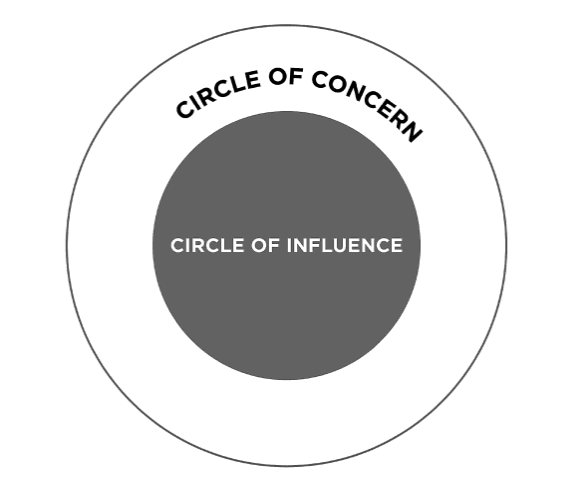Virtually all finance teams would say that it’s better to be proactive than reactive. Who wouldn’t want to operate on a forward-thinking team that anticipates needs before they become problems and finishes tasks ahead of time rather than in response to a fire?
But the reality is, many finance teams are more reactive than they’d like to admit. And we can’t really blame them. Finance has a lot to manage, especially in regard to purchasing:
- scattershot spending that results from employees using multiple different payment methods to make purchases on behalf of the company
- policy misalignment between what employees think they have to do and what they actually have to do
- a lack of transparency into company spend that leaves finance teams flying blind throughout the month until it comes time to close the books
It makes sense that finance are stuck in a cycle of reacting to problems after the fact. And that’s a shame, because those teams are not able to have the full impact on the company that they are capable of.
Being proactive takes conscious effort and a time investment, but it’s worth it in the long term. All it takes is a simple shift in mindset to encourage open communication, build relationships, and leverage the right tools to get the job done.
Reactive vs. proactive finance: Where good finance teams go wrong
In the influential business and personal-development book The 7 Habits of Highly Effective People, the first of the seven habits that author Stephen R. Covey lays out is “Be proactive.”
He introduces two concepts:
- The Circle of Concern, which is made up of all the things that a person worries about, both those that can and can't be controlled
- The Circle of Influence, a smaller circle that sits inside the Circle of Concern that only contains worries that you are able to control
In a business context, worries may include customer health, product deadlines, and budgets. As a finance team member, only certain aspects of those concerns—customer service response time or approved funding, for example—are in your control.

Source: The 7 Habits of Highly Effective People
Proactive people, Covey explains, focus their attention on the Circle of Influence, spending their time and energy on the things that are within their control. Reactive people, on the other hand, are trapped in the Circle of Concern. Instead of acting, they wait to be acted upon.
When finance teams get stuck, it’s often because they’re spending too much time in the Circle of Concern. They’re responding reactively to situations when it’s too late to influence them in any meaningful way:
- Who’s spending money that I don’t know about?
- Is [insert coworker name here] going to mess up their expense report again?
- Well, product blew through their AWS budget. Time to have an uncomfortable conversation with the project manager
What happens next will likely sound familiar to many finance teams. Tempers flare. Defenses go up. The flow of information slows to a standstill, and finance is left scrambling to keep trains running on time.
The more time finance teams spend being reactive, the less time they have to be proactive. This shrinks their circle of influence with the rest of their company, which decreases their ability to build relationships, gain trust, and deliver their full value.
Finance teams that can push past the reactive mindset and embrace a more proactive approach, there’s a huge opportunity waiting to be unlocked.
Why a proactive finance team is your company’s secret weapon
When they’re firing on all cylinders, finance teams are more than just number crunchers: They’re a powerful engine of communication and, as a result, innovation.
Finance is the central hub of activity that happens across the company. They’re talking to product about budgets for new updates, HR about the pay range for a batch of new hires, and marketing about paid advertising pushes.
That ground-level visibility into what’s going on inside the company means finance teams have a unique opportunity to act as a kind of booster for creativity and productivity.
Sometimes, the opportunity is relatively small, like redirecting a team member who wants to buy a new product or service to an existing resource:
HR: We want to do some video content for the careers page on the website, and we need to hire a video contractor.
Finance: Actually, marketing is already working with an agency. Let’s see if they’d be interested in some additional work.
Other times, the opportunities can be much bigger picture, with a much bigger impact on the company and its strategic goals.
Customer Success: A customer wants to cancel their plan because of this issue.
Finance: Wow, that’s the fifth customer that’s churned because of that exact problem this month. Maybe we should loop in Product and see if they can come up with a solution.
Product: YES, we’ve been dying to fix that exact issue.
Finance: Cool. Let's make the case to leadership and get the resources to make it happen.
These are the kinds of creative, generative interactions that finance teams can make happen when they’re working at the top of their potential. But as long as they’re playing catch-up and as long as they’re working reactively instead of proactively, that capability is mostly hypothetical.
How to unleash your finance team’s proactive power
In Covey’s framework, the key to becoming a more proactive—and thus more effective—team is working within your Circle of Influence in order to grow that influence and positively impact your organization.
Three things the finance team can do within their Circle of Influence to start working more proactively:
- Keep lines of communication open in both directions
- Break down silos and build relationships across departments
- Invest tools that empower you to act now, not later
Keep lines of communication open in both directions
There’s a stereotype that “numbers people” aren’t good at communicating. But the truth is that effective finance is all about communication, and proactive finance teams are pros at communicating with their teammates early and often.
That means creating clear, easy-to-understand policies and budgets for employees to use and communicating about those policies and budgets early and often.
It means letting other departments know what finance needs from them in order to be successful. (For example, holding off on big, ambitious projects that will need finance’s input until later in the month, because the first week is crazy busy with month-end close. )
But communication is a two-way street. It’s not enough to tell other teams what finance need from them in order to do their jobs well. Finance also need to empower other departments to get the most that they can out of finance.
For example, many non-finance team members need help understanding how to make a persuasive business case for a tool they want or a project they want to try. A proactive finance team can step in and help facilitate that process by working directly with that teammate to help them get the numbers they need to make their case, and by documenting that knowledge so that it’s readily available for the entire team (for example, creating a slide presentation and posting it on the company Wiki).
If innovation is oil, communication is the pipeline through which that oil flows. Proactive finance teams know how to keep the lines of communication open and how to keep the innovation flowing for themselves and the rest of the team.
Break down silos and build relationships across departments
Every company—and every department within the company—has its own quirks and unique ways of doing things. That’s particularly true of their relationship with finance.
Product wants more server budget so they can experiment with new features. Marketing wants a budget for vendors and paid media.
An effective, proactive finance team goes out of their way to understand these individual quirks and priorities, and develop strategies for how best to work within them.
One essential component: cultivating strong working relationships with the leaders and decision-makers on each team. From the chief marketing officer to the VP of product to the head of people ops, team leaders have a ground-level view of what’s going on inside their departments. That visibility can be a valuable point of insight for understanding what they need to be successful, and how finance can help make it happen.
Invest in tools that empower you to act now, not later
Effective finance teams leverage solutions that free them to act strategically to move the company forward. It’s hard for finance to step into its full potential if team members are spending much of their time manually reconciling long credit card statements every month.
That’s why implementing tools to automate reconciliation and code transactions upfront is the first step in releasing your finance teams from tedious manual labor. And integrating specialized platforms with your existing accounting software ties the process together to automation and unify your entire workflow.
By adopting intelligent payment systems, finance teams can streamline their processes and reduce friction. Having controls coded into your software tools proactively ensures that all transactions comply with company policy before they take place, not after. This allows finance teams to save time retroactively enforcing policy and pursue higher-impact work across the company.
Unlock the power of proactive finance
According to Stephen, the difference between proactive and reactive mindsets is “night and day.”
“I’m not talking about a 25 to 50 percent difference in effectiveness,” he writes. “I’m talking about a 5000-plus percent difference, particularly if they are smart, aware, and sensitive to others.”
This kind of proactive approach to finance doesn’t just happen. It takes discipline, intention, and a lot of communication to shift the way a team functions.
But the good news is that proactivity isn’t an inherent trait. It’s a skill. And, like any skill, it can be built over time.
Finance teams who embrace open communication, build relationships, and invest in tools that empower them have the potential to grow into strong engines of creativity and growth within their organizations.
The only question is, will you act now, or wait to be acted upon?


.webp)
.png)
.png)





